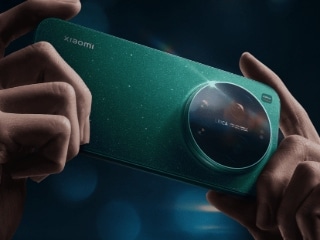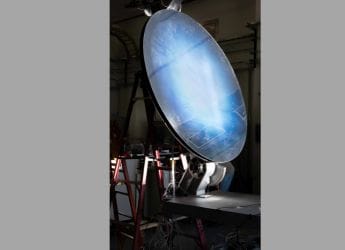- Home
- Science
- Science News
- Building Blocks of Life Discovered on Asteroid Located 200 Million Miles Away From Earth
Building Blocks of Life Discovered on Asteroid Located 200 Million Miles Away From Earth
Ryugu is made up of several small boulders rather than a single huge boulder.

Photo Credit: JAXA
Ryugu is rich in carbon-rich organic stuff
Scientists have discovered the building ingredients of life on an asteroid in space for the first time. More than 20 amino acids have been identified on the space rock Ryugu, which is more than 200 million miles from Earth. Scientists studied materials taken from the asteroid by the Japan Aerospace Exploration Agency's (JAXA) Hayabusa2 probe, which landed on Ryugu in 2018. The spacecraft retrieved 0.2 ounces (5.4 grams) of material from the asteroid's surface and subsurface in 2019, stored it in an airtight container, and returned it to Earth. Ryugu is made up of several small boulders rather than a single huge boulder.
Ryugu is rich in carbon-rich organic stuff, much of which is thought to have come from the same nebula that gave birth to the Sun and the Solar System around 4.6 billion years ago. Water has also been found on the asteroid, according to previous sample research.
The pitch-black asteroid samples, which only reflect 2 to 3 percent of the light that touches them, have not been modified by interactions with Earth's environment, giving them a chemical makeup far closer to that of the early Solar System.
Geochemist Nicolas Dauphas, one of the three University of Chicago researchers who worked with the Japan-led team of scientists, said that they only had a few of these rocks to analyse earlier, and they were all meteorites that had been housed in museums for decades to centuries, changing their compositions. So, Dauphas added, it was remarkable to have immaculate samples from outer space because they are eyewitnesses from places of the solar system nobody has visited before.
Hiroshi Naraoka, a planetary scientist at Kyushu University and the leader of the team that looked for organic matter in the samples, said while outlining the findings at the Lunar and Planetary Science Conference in March that they found a variety of prebiotic chemical molecules in the samples, including proteinogenic amino acids, polycyclic aromatic hydrocarbons akin to terrestrial petroleum, and a variety of nitrogen compounds.
Sample analysis initially found 10 amino acid kinds, but the number has already risen to more than 20. Amino acids are the basic building blocks of all proteins and are required for life to exist on our planet.
The first collection of these findings, published in Science, reveals Ryugu's makeup.
For now, the researchers are analysing Ryugu samples, and additional information about the asteroid's makeup will be released soon.
Get your daily dose of tech news, reviews, and insights, in under 80 characters on Gadgets 360 Turbo. Connect with fellow tech lovers on our Forum. Follow us on X, Facebook, WhatsApp, Threads and Google News for instant updates. Catch all the action on our YouTube channel.
Related Stories
- Samsung Galaxy Unpacked 2026
- iPhone 17 Pro Max
- ChatGPT
- iOS 26
- Laptop Under 50000
- Smartwatch Under 10000
- Apple Vision Pro
- Oneplus 12
- OnePlus Nord CE 3 Lite 5G
- iPhone 13
- Xiaomi 14 Pro
- Oppo Find N3
- Tecno Spark Go (2023)
- Realme V30
- Best Phones Under 25000
- Samsung Galaxy S24 Series
- Cryptocurrency
- iQoo 12
- Samsung Galaxy S24 Ultra
- Giottus
- Samsung Galaxy Z Flip 5
- Apple 'Scary Fast'
- Housefull 5
- GoPro Hero 12 Black Review
- Invincible Season 2
- JioGlass
- HD Ready TV
- Latest Mobile Phones
- Compare Phones
- Leica Leitzphone
- Samsung Galaxy S26+
- Samsung Galaxy S26 Ultra
- Samsung Galaxy S26
- iQOO 15R
- Realme P4 Lite
- Vivo V70
- Vivo V70 Elite
- Asus TUF Gaming A14 (2026)
- Asus ProArt GoPro Edition
- Huawei MatePad Mini
- Infinix Xpad 30E
- Huawei Watch GT Runner 2
- Amazfit Active 3 Premium
- Xiaomi QLED TV X Pro 75
- Haier H5E Series
- Asus ROG Ally
- Nintendo Switch Lite
- Haier 1.6 Ton 5 Star Inverter Split AC (HSU19G-MZAID5BN-INV)
- Haier 1.6 Ton 5 Star Inverter Split AC (HSU19G-MZAIM5BN-INV)

















